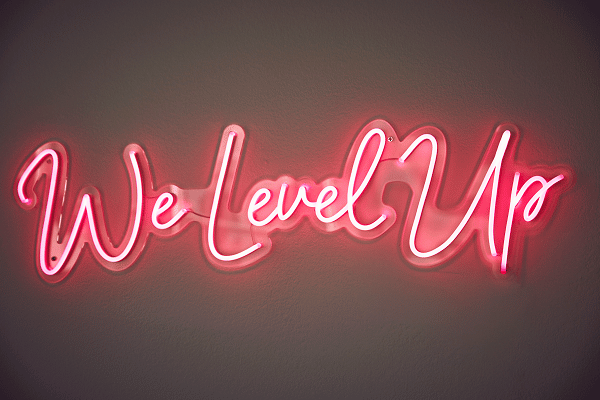What is alcohol detox? How long to Detox from Alcohol?
Alcohol addiction is a dangerous condition that can ultimately become life-threatening. Alcohol Detox allows the body to eliminate the presence of all alcohol in the body and return to its usual way of functioning. An individual who has been struggling with a moderate to severe alcohol use disorder (alcohol addiction) has a significant likelihood of developing withdrawal symptoms and could benefit from the help of a detox program.
The longer and heavier the drinking, the more prolonged and more severe detox will be. For this reason, going through the process sooner than later, and getting help, is critical to recovery. Some people are apprehensive about quitting drinking due to withdrawal symptoms, but detoxing from alcohol is the first step in treating alcoholism.
The Alcohol Detox stage is the first step in treating alcoholism. Withdrawal symptoms typically subside within approximately one to two weeks after starting detox; however, this could take longer depending on the severity of your Alcohol Use Disorder (AUD).
From there, you will be able to focus on other aspects of the recovery process, such as different activities, therapies, counseling sessions, and support options. Alcohol is a depressant that your body begins to rely on over months and years of drinking. Your brain eventually stops producing certain chemicals that it receives from alcohol, becoming dependent on the drug.
That’s why when you quit drinking; it takes time for your body to adjust. This causes withdrawal symptoms such as headache, fever, nausea, irregular heartbeat, and hallucinations.
Withdrawal symptoms can change quickly and aggressively, which is why it’s important to detox under the care of medical professionals. Treatment professionals at a rehab facility will be able to help you manage your pain with different medications. This allows you to focus on your recovery and get better.

How long does it take to detox from alcohol?
Alcohol withdrawal symptoms may vary from person to person, but the general timeline can be distilled into three stages:
- Stage 1: In the first 6 to 12 hours, people will experience headaches, anxiety, stomach pains, insomnia, poor appetite, and nausea.
- Stage 2: In the next 12 to 48 hours, withdrawal escalates to include new symptoms like hallucinations and seizures.
- Stage 3: In that remaining 48 to 72 hours, withdrawal symptoms include fever, sweating, confusion, quick heart rate, high blood pressure, delirium tremens (DTs) with auditory hallucinations and even death.
The acute withdrawal stage will be the worst of the withdrawal symptoms. Alcohol withdrawal syndrome can be a potentially life-threatening event if not handled or treated properly, so it’s important to know what helps with alcohol withdrawal.
What Is Delirium Tremens?
Delirium tremens (DTs) or “alcohol withdrawal delirium,” is one of the more extreme signs and symptoms that can occur after alcohol cessation. DTs are marked by a change in the level of consciousness and delirium and can be fatal in 1% to 5% of cases. Older patients with poor liver function, a history of heavy alcohol use, and more severe signs and symptoms of withdrawal at the outset are more likely to experience DTs.

What Happens During Alcohol Withdrawal & Detox?
How long does it take to detox from alcohol? Alcohol stays in your system for a certain amount of time-based on your body weight, metabolism, and how many drinks you’ve had. Once you stop drinking, expect to experience certain symptoms, particularly if you are a chronic drinker.
We surveyed 2,136 American adults who either wanted to stop drinking alcohol or had already tried to (successfully or not). Of those surveyed, 1,559 had detoxed before. We asked them about their alcohol use, reasons for drinking, alcohol-related outcomes, health, and more.
Respondents’ withdrawal symptoms lasted for an average of 4.83 days. For 95% of respondents, withdrawal symptoms lasted between 2–8 days. This range stayed the same whether they were using home remedies for alcohol withdrawal or detoxing at a medical facility.
Respondents who had detoxed from alcohol reported experiencing the following withdrawal symptoms:
- 1 in 2 respondents reported irritability (46.8%)
- 1 in 2 reported fatigue (42.3%)
- 1 in 2 reported sweating (44.9%)
- 1 in 2 reported stress or anxiety (48.6%)
- 1 in 3 reported hand tremors (33.5%)
- 1 in 4 reported nausea or vomiting (23.6%)
- 1 in 4 reported mood swings (23.6%)
- 1 in 5 reported rapid heart rate (22.9%)
- 1 in 8 reported hallucinations (13.4%)
- 1 in 10 reported Delirium tremens (DT) (11.4%)
- 1 in 12 reported seizures (8.2%)
Across the board, heavy alcohol users reported withdrawal symptoms more than average. Heavy drinkers more than doubled their risk for hallucinations during detox, being 2.39 times more likely than other alcohol users to experience them. Compared to others during detox, heavy drinkers were:
- 90% more likely to experience Delirium Tremens (a potentially fatal complication)
- 45% more likely to experience seizures
- 95% more likely to experience rapid heart rate
- 147% more likely to experience hand tremors
- 69% more likely to experience sweating
- 65% more likely to experience nausea or vomiting
- 35% more likely to experience irritability
- 28% more likely to experience fatigue
- 28% more likely to experience stress or anxiety
- 27% more likely to experience mood swings
Causes of Alcohol Withdrawal
Alcohol withdrawal is thought to arise as a function of various changes in brain activity caused by prolonged and excessive alcohol use. Though the neurochemical details of alcohol withdrawal syndrome are somewhat complicated, its associated symptoms reflect compensation for previous disruptions in both excitatory and inhibitory neurotransmitter activity—the balance between the two having been upended, to begin with as a result of prolonged alcohol use.
The effects alcohol has on the body are complex, but two particular neurochemicals contribute to both short-term effects of drinking as well as the development of alcohol withdrawal syndrome when someone stops drinking: the brain’s main inhibitory chemical, gamma-aminobutyric acid (GABA), and the brain’s main excitatory chemical, glutamate.
When a person drinks alcohol it changes the functioning of GABA receptors as well as certain glutamate receptors, resulting in a slowdown of brain functioning that a person typically experiences as decreased anxiety and sedation. The brain reacts by decreasing the amount of GABA being released and increasing glutamate signaling to compensate for how alcohol alters these levels. This adaptation functions as long as you continue to drink alcohol—this is known as ‘tolerance.’
If you stop or significantly reduce alcohol intake, it disrupts your brain activity, causing a hyper-aroused state which leads to a range of withdrawal symptoms that can appear within hours after your last drink. The withdrawal symptoms a person experiences, as well as their severity, may vary greatly from one person to the next, and it has been estimated that more than 80% of those with an alcohol use disorder may experience withdrawal symptoms.
Dangers of Alcohol Withdrawal
How long does it take to detox from alcohol? Moderate-to-severe alcohol withdrawal can be extremely dangerous and sometimes life-threatening. The most severe form of alcohol withdrawal, delirium tremens, has a mortality rate of 1-4%.
Experiencing severe alcohol withdrawal symptoms is somewhat rare, however, it can be difficult to predict those who will experience them and those who will only experience mild withdrawal symptoms. Despite this, studies have identified some predictors of severe alcohol withdrawal (e.g., withdrawal seizures or DTs). These include:
Signs of Alcohol Withdrawal
Signs and symptoms of the various stages of alcohol withdrawal may include:
- Headaches
- Anxiety
- Tremors
- Insomnia
- Fatigue
- Mood changes
- Gastrointestinal disturbances
- Heart palpitations
- Increased blood pressure or heart rate
- Hyperthermia
- Rapid abnormal breathing
- Hallucinations
- Seizures
What Is the Treatment for Alcohol Withdrawal?
Treatment for alcohol withdrawal symptoms and the beginning of the detoxification process is best handled by professionals and often takes place in an inpatient setting like a detox or rehab center.
Typical Treatments
The goal of treatment is to ease the symptoms of withdrawal and support the patient during this critical time. Typical treatment for alcohol withdrawal may include:
- Initial observations of the patient to determine the severity of withdrawal symptoms
- Anti-anxiety drugs, like benzodiazepines to reduce anxiety triggered by withdrawal symptoms
- Anti-seizures drugs, like Depakote to avoid seizures
- Beta-blockers, which can slow the heart rate, reduce tremors and sometimes also help with the craving for alcohol
Alcohol withdrawal is mentally, physically, and emotionally exhausting. This is why skilled rehabilitation centers, where competent and compassionate professionals can supervise the detoxification process and manage withdrawal symptoms, are so vital for patient health and safety. These are the first, difficult steps towards sobriety. If you’re not ready to detox in a rehab facility, you may want to learn about how to taper off alcohol.

What is the Long-Term Outlook for Alcohol Withdrawal?
The NLM reports that the long-term outlook (prognosis) depends on the extent of organ damage and whether or not the person continues to drink after rehab. In the months after treatment, patients may still experience sleep disturbances, mood swings, and low energy levels.
A complete recovery is possible. However, if patients return to drinking, they are at risk for sustaining serious bodily injury including liver, heart, and nervous system disease or damage.
The Importance of Professional Help
How long does it take to detox from alcohol? If you or a loved one are attempting to self-detox or experiencing withdrawal symptoms, it’s important to reach out and get medical attention. If Delirium Tremens is present, death can become a very likely outcome. A kindling effect can also occur if withdrawal is not addressed immediately, which can lead to rapidly worsening withdrawal symptoms later.
The safest way to address alcohol abuse, as well as detox, is to consult with a medical professional or seek professional treatment. When speaking with your medical professional about how to detox from alcohol, they will tell you it’s the first step of a comprehensive rehab program. If you are facing withdrawal symptoms, you should address the root of the problem by getting professional help or undergoing inpatient treatment.
Sobriety from alcohol can be a hard path to begin, but by having the resources and education in place, you can find your way to lasting recovery.
How long does it take to detox from alcohol?Reclaim Your Life From Alcohol Abuse & Addiction
How long does it take to detox from alcohol? Alcohol withdrawal symptoms may vary from person to person, but the general timeline can be distilled into three stages over the course of three days. Alcohol Use Disorder is a condition that can cause major health, social, and economic problems that should not be taken lightly.
We Level Up California can provide you, or someone you love, the tools to start recovering from alcohol use disorder with professional and safe alcohol detox treatment. Feel free to call us to speak with one of our knowledgeable counselors. We can inform you about this condition and provide relevant information while answering all your questions. Rest assured, our specialists know what you are going through and stand ready to help. Please know that each call is private and confidential.

